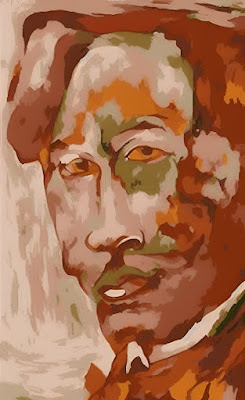For many, if not most, of us George Orwell's last two books were required reading when I was growing up. If you brought up the books Animal Farm or 1984 in a conversation, it could pretty much be assumed that everyone present knew what you were talking about.
This is not the case with regards to Orwell's previous works, at least in the U.S.
Briefly, The Road to Wigan Pier is a nonfiction work, otiginally published in 1937. The book is divided into two parts. The first part, which I found truly fascinating, is an account of Orwell's experiences living among the working class in Lancashire and Yorkshire in the north of England during the Great Depression. The second part is a more theoretical discussion of poverty, class, and socialism.
In the first part of the book, Orwell describes the harsh living conditions of the working class in detail. Both of my own grandfathers worked in the West Virginia coal mines for a brief period of their lives. Orwell makes vivid the poverty, hunger, and unemployment that they face. He also writes about the lack of opportunities for education and advancement. Orwell's descriptions are often graphic and disturbing, but they are also honest and compassionate.
HERE are some excerpts from the book, the first of these being quite amusing.
In addition to this there is the horrible — the really disquieting — prevalence of cranks wherever Socialists are gathered together. One sometimes gets the impression that the mere words "Socialism" and "Communism" draw towards them with magnetic force every fruit-juice drinker, nudist, sandal-wearer, sex-maniac, Quaker, 'Nature Cure' quack, pacifist, and feminist in England.
* * *
Watching coal-miners at work, you realize momentarily what different universes people inhabit. Down there where coal is dug is a sort of world apart which one can quite easily go through life without ever hearing about. Probably majority of people would even prefer not to hear about it. Yet it is the absolutely necessary counterpart of our world above. Practically everything we do, from eating an ice to crossing the Atlantic, and from baking a loaf to writing a novel, involves the use of coal, directly or indirectly. For all the arts of peace coal is needed; if war breaks out it is needed all the more. In time of revolution the miner must go on working or the revolution must stop, for revolution as much as reaction needs coal. Whatever may be happening on the surface, the hacking and shovelling have got to continue without a pause, or at any rate without pausing for more than a few weeks at the most. In order that Hitler may march the goose-step, that the Pope may denounce Bolshevism, that the cricket crowds may assemble at Lords, that the poets may scratch one another's backs, coal has got to be forthcoming.* * *
But on the whole we are not aware of it; we all know that we 'must have coal', but we seldom or never remember what coal-getting involves. Here am I sitting writing in front of my comfortable coal fire. It is April but I still need a fire. Once a fortnight the coal cart drives up to the door and men in leather jerkins carry the coal indoors in stout sacks smelling of tar and shoot it clanking into the coal-hole under the stairs. It is only very rarely, when I make a definite mental-effort, that I connect this coal with that far-off labour in the mines.* * *
You could quite easily drive a car right across the north of England and never once remember that hundreds of feet below the road you are on the miners are hacking at the coal. Yet in a sense it is the miners who are driving your car forward. Their lamp-lit world down there is as necessary to the daylight world above as the root is to the
flower.Twenty million people are underfed but literally everyone in England has access to a radio. What we have lost in food we have gained in electricity. Whole sections of the working class who have been plundered of all they really need are being compensated, in part, by cheap luxuries which mitigate the surface of life.When I was a small boy at school a lecturer used to come once a term and deliver excellent lectures on famous battles of the past, such as Blenheim, Austerlitz, etc. He was fond of quoting Napoleon's maxim 'An army marches on its stomach', and at the end of his lecture he would suddenly turn to us and demand, 'What's the most important thing in the world?' We were expected to shout 'Food!' and if we did not do so he was disappointed.
Obviously he was right in a way. A human being is primarily a bag for putting food into; the other functions and faculties may be more godlike, but in point of time they come afterwards.* * *
So perhaps the really important thing about the unemployed, the really basic thing if you look to the future, is the diet they are living on.Related What I have shared here are excerpts, not a real review of Orwell's book. You can find an interesting review here: George Orwell's The Road to Wigan Pier
George Orwell’s Homage to Catalonia











No comments:
Post a Comment